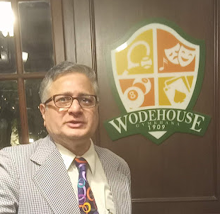HOW A
SUCCESSFUL COACH
BUILDS A RELATIONSHIP
What makes for an excellent coach? What personal qualities do top coaches possess that separate them from the good coach? Is it more the training or the inner qualities? Is it more coaching technique or the artistry? Is it more coaching knowledge or its application? Is it more natural talent for helping people or cultivated abilities? Is it insightful analysis of people or an abiding presence with them?
1. Exquisite self awareness- You practice this like a Zen Monk humble, open, nurturing and grateful to the world.
2. High emotional intelligence – you can empathize with the coachee and are perceptive, intuitive, curious and inquiring. You have a sincere interest in clients and desire to help.
3. Broad vision with focus on important details- Executive Coaching is co partnership to solve business related problems not an unloading of advice or knowledge See coaching as a two way interchange of energies and learnings.
4. Superb Communication- Nuanced, crisp suggestions and hints in the form of provocative or exploratory open ended questions and sharp comments to spark insight
5. Treat the Coachee as an Equal- Highest regard, caring and respect for clients. David Ogilviy said 50 years ago “… the customer is not a moron; she is as intelligent as your wife ….” Here your customer is the coachee you are the Servant Leader!!
6. With too may quack “certificate holders” in the market; you can only stand out in the crowd by being a creative, innovative learner and developer of custom coaching methodologies. You have a capacity for deep and wide learning as a student of coaching and other disciplines that support helping others. Continuous learner of themselves and their experiences.
There probably is no one single attribute that all excellent
coaches possess. Top flight coaches can be comprised of many stripes and can
come from many places, but they all connect with their charges, they know how
to make changes with them and they know how to get results. Bottom line, they
get the work done. You view coaching as
a calling, an art and a discipline. However the style and conduct of the
coaching sessions is the crux of the coaching relationship and the results one
can expect:
A good coach should be able to…
1.
He has to
be e clear right in the beginning of the intervention about t learning and
development objectives.
2.
Avoid ‘jumping in’ to coaching until they have a
relationship working with the person being coached (and never stop working on
the relationship until they stop coaching).
3.
Be clear
about the impact of your own behavior on the coachee. He must show good, sound
judgment about which information to use with the coachee and whether the timing
is right to share other, more sensitive information with him or her;
4.
How
integrity by follow through on promises
or agreements Be available when needed by the individual and offer their time. Continually show that you have the coachee’s
best interests in mind.
5.
Communicate high expectations for individuals
and have faith in their abilities to perform well. Raise the individual’s
status. They should know the individual being coached is likely to say things
that the coach wants to hear, more than they would to a co-worker, spouse, or
friend. Avoid comparing the performance of the person they are coaching to the
performance of someone else (or treat each individual as a unique situation and
adjust their coaching style accordingly).
6.
When they do not know the answer to a question,
admit it and offer to find the answer and provide it at the next coaching
session (or sooner).Relate their real life experiences and stories (when doing
so, using “I” and not the generic “you” to talk about themselves).Admit failure.
A good coach should be therefore able to ‘model’ a key component of lifelong
learning by being honest with their own performances and using them as an
opportunity for learning.
7.
Honestly examine the role they should be
playing. They should examine whether they want to be a constant nag, a bully, a
friend, a critic, a mentor, a leader, a teacher, a manager, a counselor, a
disciplinarian, or a role-model? Or even play multiple roles?
8.
Avoid assuming that the individual’s reluctant
or nervous responses are merely signs of resistance and defensiveness to be
simply ignored or overcome just because they are different from what they may
want him or her to say. These statements should ideally be seen as genuine and
valuable indicators of how an individual feels and may offer clues on possible
future remedial actions that can be taken.
9.
Be willing to “lead from example” or to be an
“exemplar” (modeling the desired behavior and not expecting the person being
coached to do something they will not do themselves.
CONCLUDING
Before a coaching relationship is agreed, it is important to have an introductory session. During this session both the coach and the client will have an informal conversation about how the coaching could work, the primary goal of this meeting is to establish if the qualities and personalities of both parties match.
The masker key is however is : HAVE A PASSION for coaching and show an interest in the client and in developing them. By being passionate about coaching and by believing in the coaching benefits this comes across in a positive way during your sessions. The client must believe that you are confident in your abilities and that you will be able to help them in their ultimate goal of change.
Best of luck



No comments:
Post a Comment